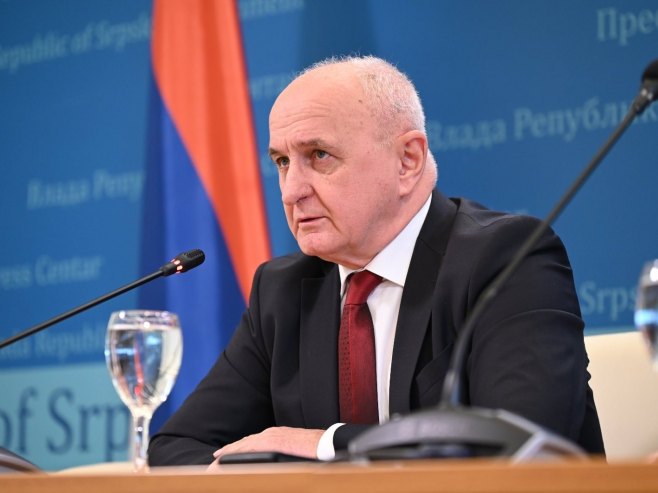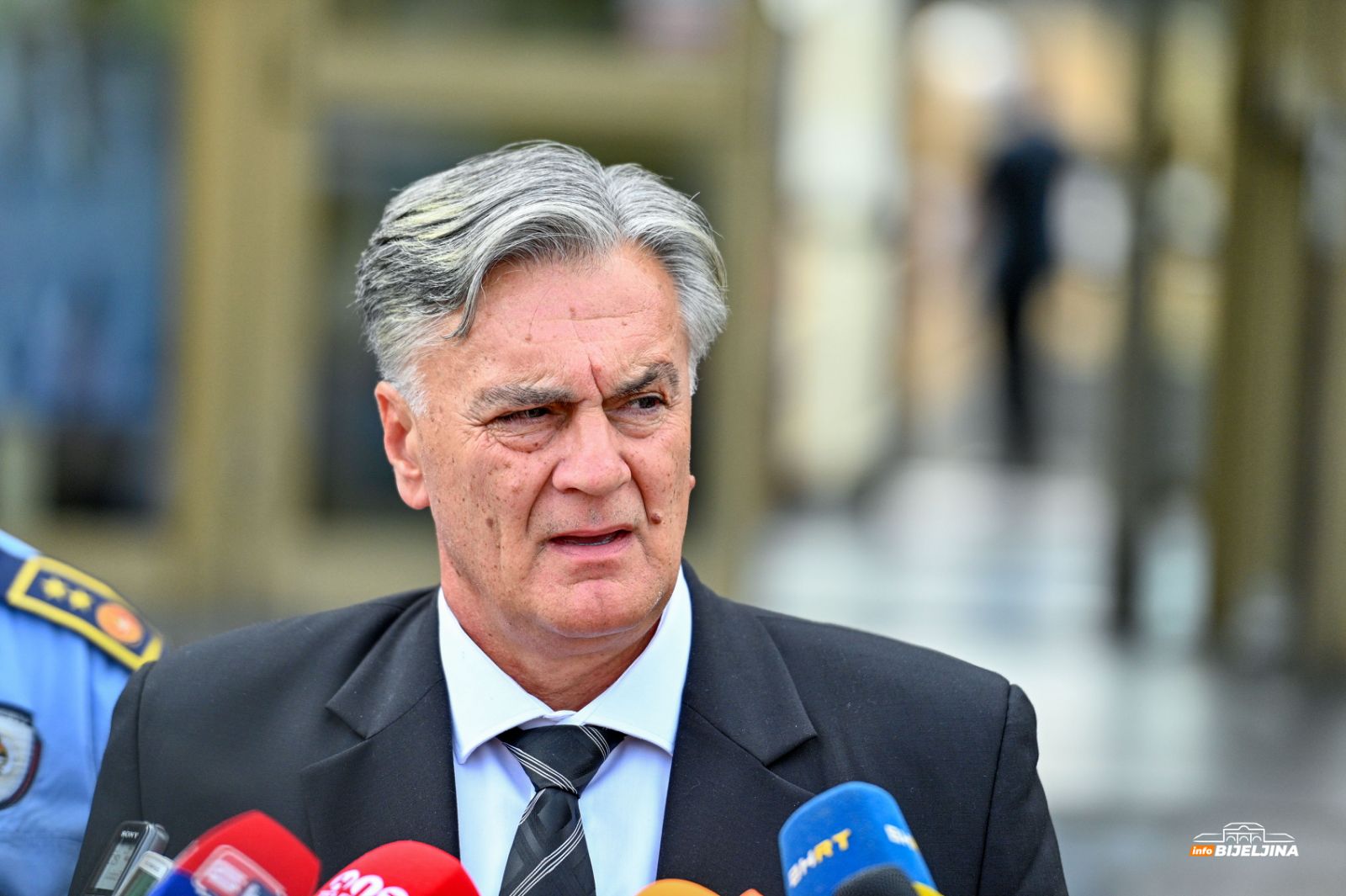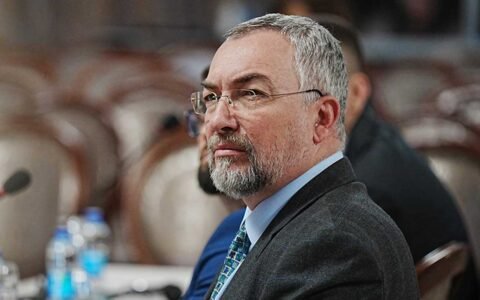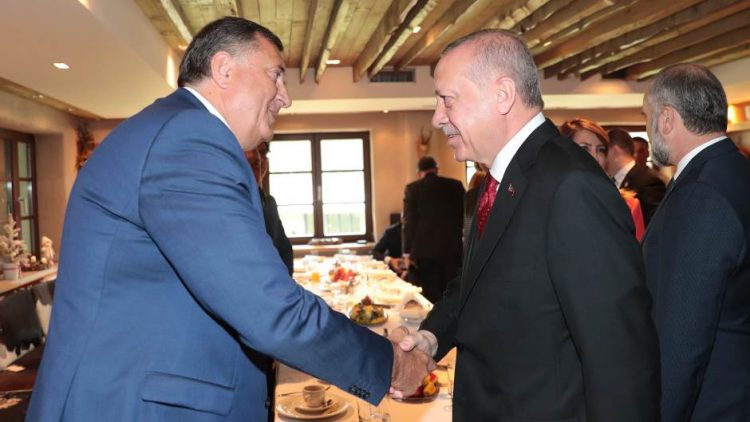Before the President of Republika Srpska, Milorad Dodik, is not a verdict, but a new electoral victory in October. If the foreign factor in BiH has not yet realized this, then they understand nothing, emphasized Aleksandar Vranješ, the BiH Ambassador to Serbia.
Vranješ stressed that what can be confidently stated is that Republika Srpska will not passively wait for the international community to undermine its foundations. Political self-defense is the only option left for the leadership of Srpska, as legal methods in BiH have long been corrupted by the principle of ‘the judge accuses, the judge judges,’ highlighted Vranješ.
On the other hand, he added, the question that should concern analysts in various embassies in Sarajevo is – how will BiH survive Western tyranny?
In his column for Belgrade’s Politika, Ambassador Vranješ reminded that at the beginning of 2021, the interviews of two former high representatives, Carl Bildt and Wolfgang Petritsch, caught the public’s attention in BiH.
“On the occasion of the upcoming 25th anniversary of the Dayton Peace Agreement, both reflected on the current situation in BiH, offering some of their solutions. As if they had agreed, both concluded that it is necessary to extinguish the OHR. Thus, Bildt emphasized for BHRT in January 2021 that the role of the high representative should be reduced, that the time of Bonn powers is over, and that BiH is no longer a protectorate of the international community. Petritsch shared a similar view, stating for Radio Free Europe in February of the same year that the OHR is now part of the problem, not the solution, and if Schmidt were appointed high representative despite Russia’s veto, then the legitimacy of the OHR would be completely disavowed,” stated Vranješ.
The events that followed, Vranješ added, completely negated the conclusions of these two veterans.
“It was increasingly rumored from early 2021 that Christian Schmidt was a potential successor to Valentin Inzko. It was claimed that he was the choice of the outgoing Chancellor Angela Merkel, despite the US seeing someone else for the position. However, the US accepted Schmidt and ‘pushed’ his name at the Peace Implementation Council (PIC) Board. This ad hoc ‘informal group of countries,’ as it was once characterized by the European Court of Human Rights, was not enough to initiate Schmidt as the high representative,” stated Vranješ.
He pointed out that a UN Security Council resolution was missing, thanks to the principled positions of the Russian Federation and China, and thus Schmidt’s verification.
“However, this did not prevent the Western group of countries from giving legitimacy to Schmidt and backing him to start imposing a series of decisions in BiH, invoking the controversial Bonn powers. This opened ‘Pandora’s Box,’ and only a few individuals among Western diplomats will honestly answer the question of whether violating international law in the case of Schmidt and his inauguration at all costs has stabilized the political situation in BiH, or if this state community is now in greater political chaos, on the verge of disintegration,” emphasized Vranješ.
According to him, one of Schmidt’s many impositions, applauded by the West, was the amendment of the Criminal Code of BiH, which established a new criminal offense “non-execution of decisions by the high representative.”
“This made the rejection of blind obedience to the Western ‘viceroy’ in BiH a criminal act with a prescribed prison sentence of six months to five years with a mandatory prohibition of performing duties. Thus, if a Serbian official dared to ignore the illegal decisions of the non-existent high representative in BiH, he could end up in prison and be deprived of the right to perform a public function. And guess what, the target was Milorad Dodik,” emphasized Vranješ.
Very quickly, Vranješ reminded, an indictment was created and raised against the President of Republika Srpska for fulfilling his constitutional duty to proclaim the Law on Non-Application of Decisions of the Constitutional Court of BiH, which was previously adopted by the National Assembly, and which was then nullified by the fake high representative via the OHR website.
“And despite the fact that Schmidt’s amendment to the Criminal Code of BiH came into force the day after Dodik’s decree on the proclamation of the law, an accelerated procedure of writing the indictment, initiating legal proceedings, bringing suitable judges, and creating a media atmosphere as if the foreigners have finally cornered Milorad Dodik followed,” added the BiH Ambassador to Serbia.
He concluded that it is obviously a political process with a clear objective, but as things stand, BiH is more likely to disappear than Milorad Dodik’s political career.
“What is increasingly heard in the corridors of Banja Luka is the prepared measures that the authorities in Republika Srpska will undertake in case the president is convicted and banned from political activity. It can be heard that a whole series of laws will be presented to the National Assembly of Republika Srpska on an urgent basis, from the Law on Non-Application of Decisions of the Court of BiH, to regulations that would ensure the financing of state officials from the Serb people at the level of joint institutions,” stated Vranješ.
Then, he added, it is planned that Serb officials at the BiH level will stop making decisions, but without withdrawing from Sarajevo. According to him, at the same time, the Electoral Law will be adopted, and all future local and general elections on the territory of Republika Srpska will take place outside the Central Election Commission of BiH.
“Numerous measures can be heard in the corridors, and when asked how to justify all this with the letter of the Dayton Agreement, the answer is that the US and Germany, with Western partners, have demolished that very agreement by changing the order and carrying out a silent occupation of BiH, which has particularly flared up in the last two years with the German official Schmidt. Thus, Serb political resistance to this tyranny has no alternative, even if nothing remains of the state community, as interlocutors concluded,” concluded Vranješ.
Source: RTRS









